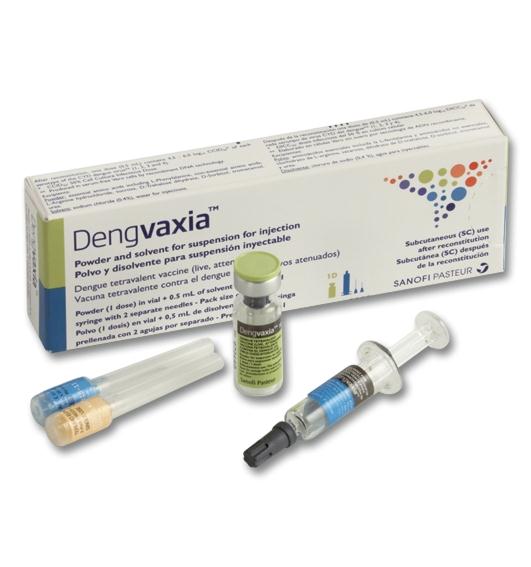Headline
2 dengue deaths linked to Dengvaxia failure: experts

The PGH Dengue Investigative Task Force reported that three out of 14 schoolchildren died of the so-called “dengue shock syndrome” after receiving the controversial anti-dengue vaccine, Dengvaxia. (Photo: MIMS)
MANILA— An expert panel from the University of the Philippines-Philippine General Hospital (UP-PGH) said Friday that two out of 14 deaths linked to dengue may be due to “vaccine failure”.
In a press conference, UP Manila-PGH Department of Pediatrics chair, Dr. Juliet Aguilar, said vaccine failure refers to the development of the specific disease being prevented by the vaccine in a person who is “appropriately and fully vaccinated”.
The PGH Dengue Investigative Task Force reported that three out of 14 schoolchildren died of the so-called “dengue shock syndrome” after receiving the controversial anti-dengue vaccine, Dengvaxia.
However, Aguilar emphasized that such findings “require further validation”.
“But we cannot say that talagang vaccine failure. Pwede, pwedeng hindi (It may or may not be). But we cannot categorically say. That is why we need some more tests,” said Aguilar.
“Nagkaron ng sakit or in other words hindi naprotektahan yung nabigyan ng bakuna. So kahit na sabihing tama ang pagkabigay ng bakuna, tapos husto pa rin sa proseso, kasi may mga sakit kasi na may incubation period na exposed ka na tatamaan ka na agad, (The patient may not have been protected. So even if the medicine was properly given, and the processes were right, there are diseases that have incubation period),” Aguilar said.
The expert panel saw vaccine failure in two out of three cases of dengue shock syndrome classified as “causal association”.
The panel said “causal association” was the relationship between two events in which the second one is a consequence of the former.
In their analysis, they found the two patients had not developed antibodies for dengue as seen in the clinical records.
It is suspected that one of the patients had dengue incubation when vaccinated, as the patient died four days after receiving the first dose.
“So wala siyang anti-bodies against dengue. Talagang na-contract niya yung disease. Ang sabi namin, ang interpretasyon namin, nagduda kami, bakit napakabilis ng naging course ng sakit niya,” the expert said.
Based on the experts’ analysis, six deaths were attributed to pre-existing illnesses – leukemia, lupus, congenital heart disease, brain infection, encephalitis, and brain hemorrhage.
Three cases on the other hand were classified as “coincidental” because there was “inconsistent causal association to immunization”.
“Ang kinamatay nila ay hindi dengue at walang tiyak na ebidensya na ito ay konektado sa Dengvaxia. (Their deaths were not due to dengue and there is no direct evidence that can connect the deaths to Dengvaxia),” the expert added.
The expert panel also said two other cases were “unclassifiable” due to inadequate information available.
Reinforcing gov’t decision
For its part, the Department of Health (DOH) said the PGH task force’s report had solidified their decision last year to halt the Dengvaxia vaccination.
“These findings strengthen the decision made by the Secretary (Francisco Duque III) to stop the vaccinations because we think that it has really failed to some children and that in some cases, lalo na yung mga maysakit dati, na di naman na-screen na baka may possible problem then, dahil marami sila and that we really feel that Dengvaxia is not ready for vaccination,” said DOH Undersecretary Enrique Domingo.
Domingo said they would submit the reports to the Department of Justice (DOJ) to help in the current investigation of the case.
“We are open to working with the DOJ. We are willing to share all the information that we have. We hope that maybe we can work together so that we can solidify the scientific investigation of these cases,” said Domingo.
He also assured that the health department has a program in place to help in the treatment of dengue infection, and vowed to shoulder the costs of hospitalization of those vaccinated with Dengvaxia.
Last December, Health Secretary Francisco Duque III halted the dengue vaccination program after vaccine maker Sanofi Pasteur reported that Dengvaxia can cause severe dengue among those with no previous dengue infection.
The government had also sought the “expertise” of the UP-PGH to validate alleged deaths attributed to Dengvaxia.





















